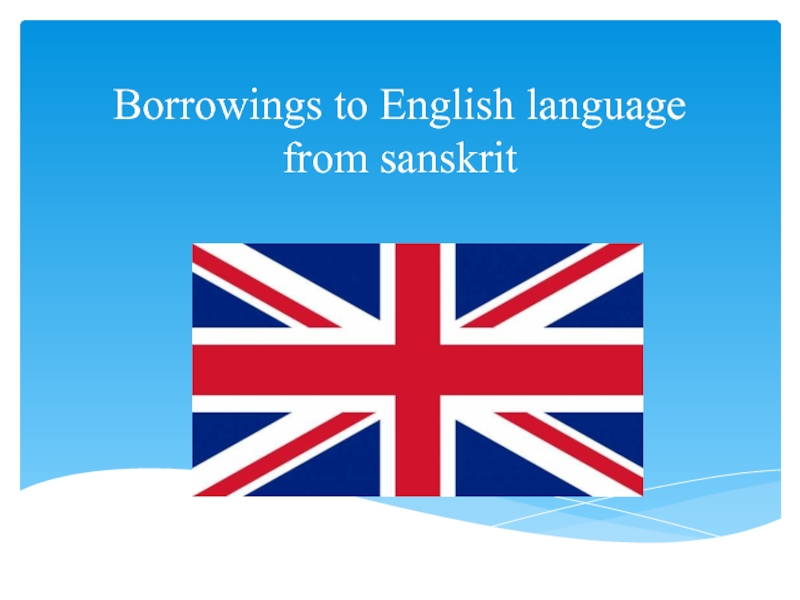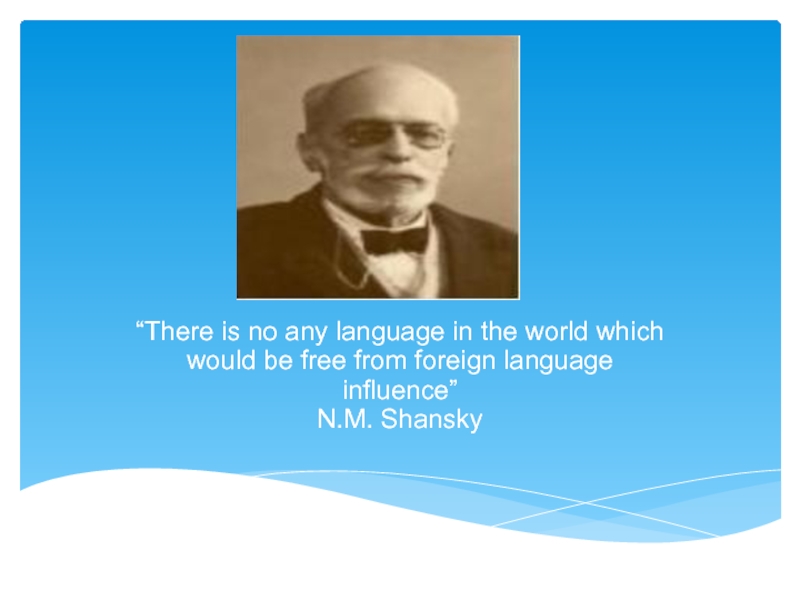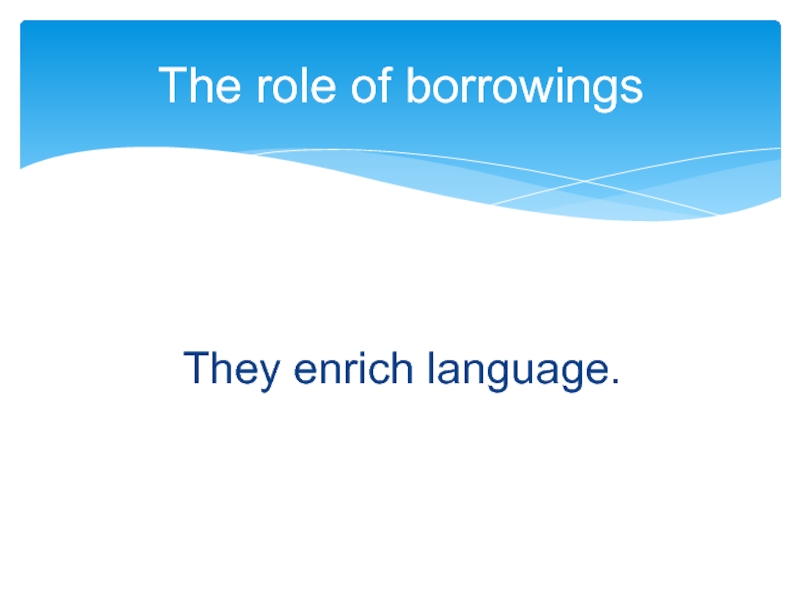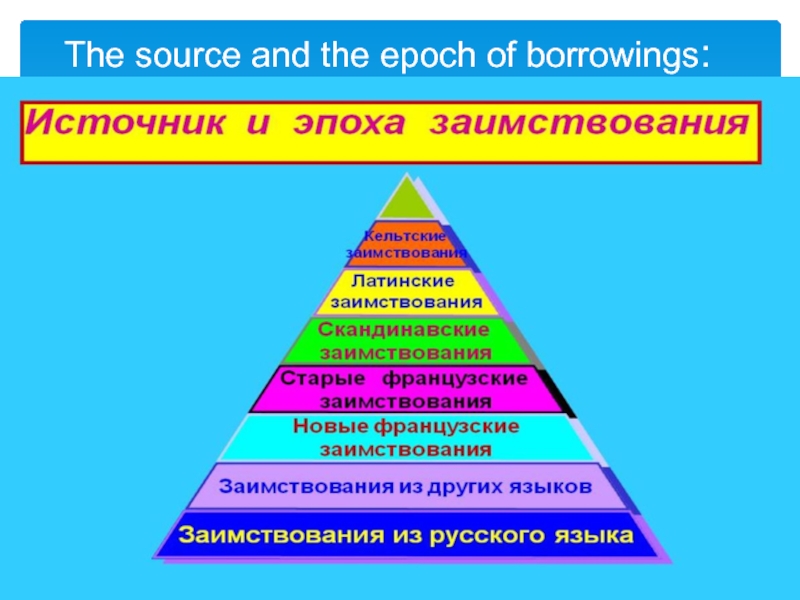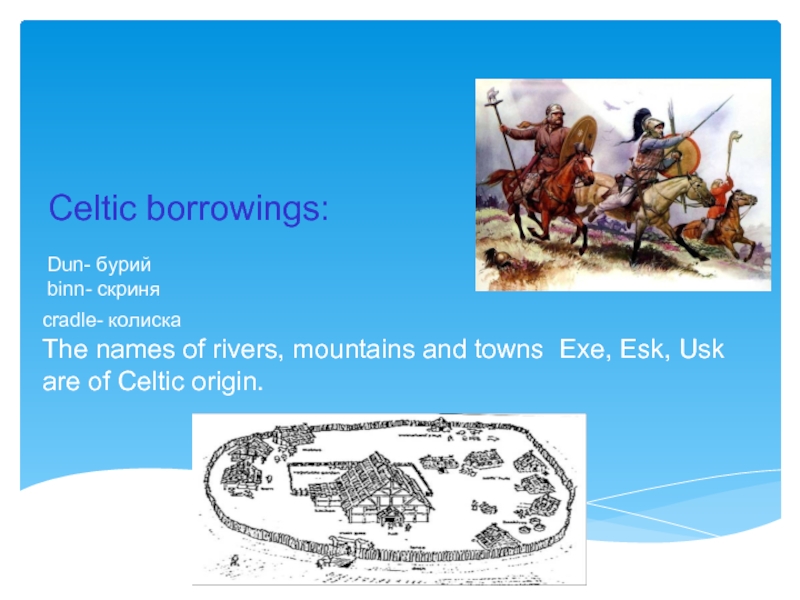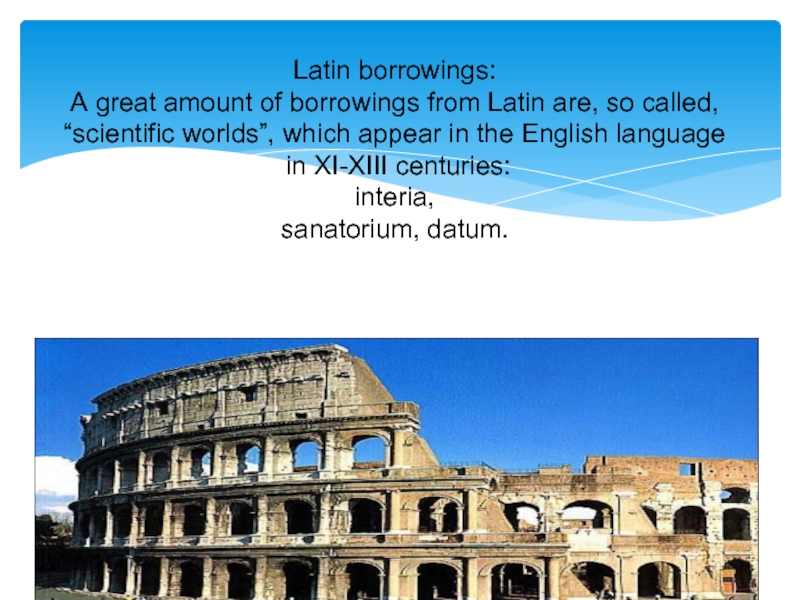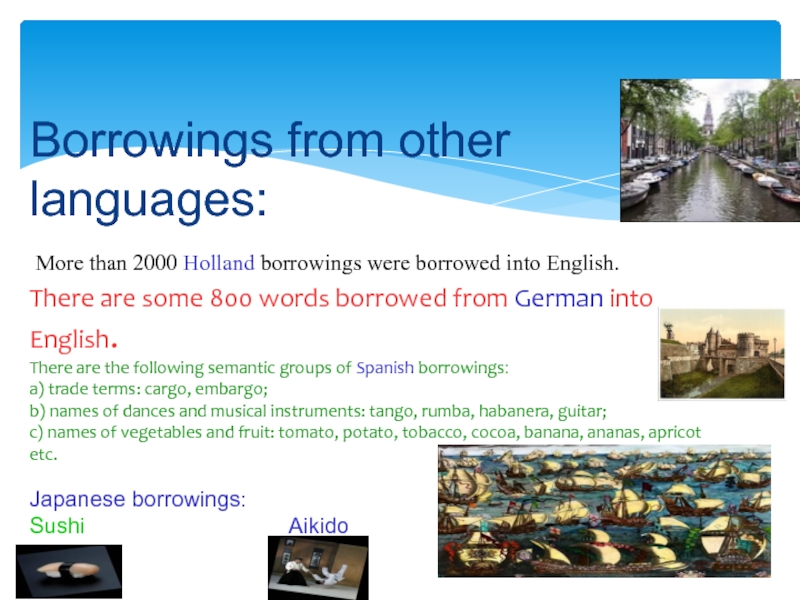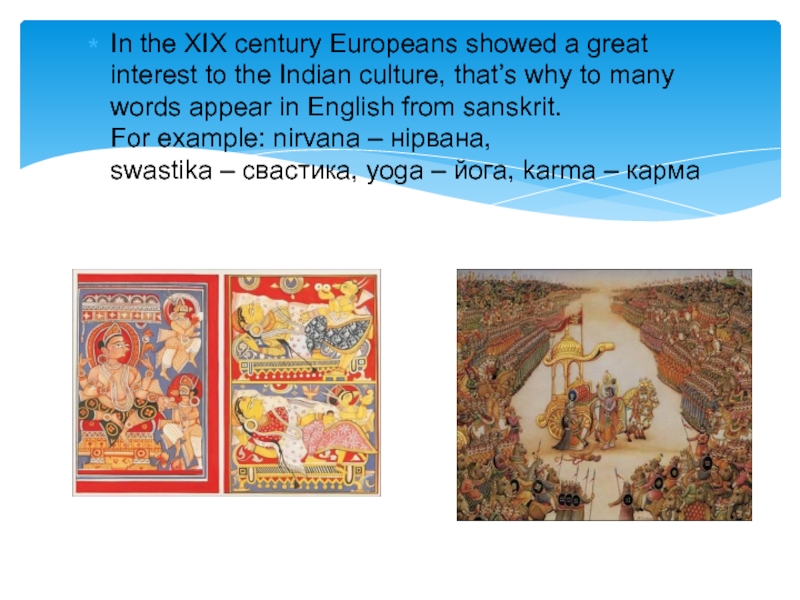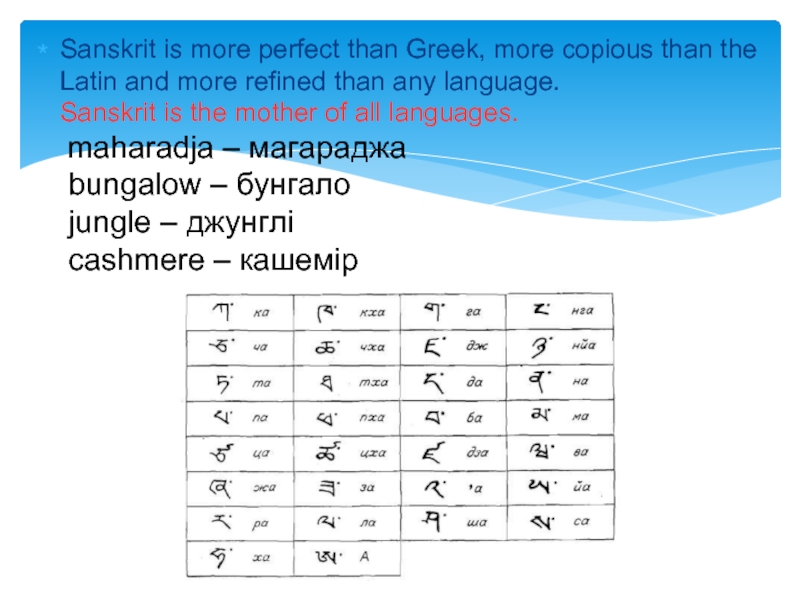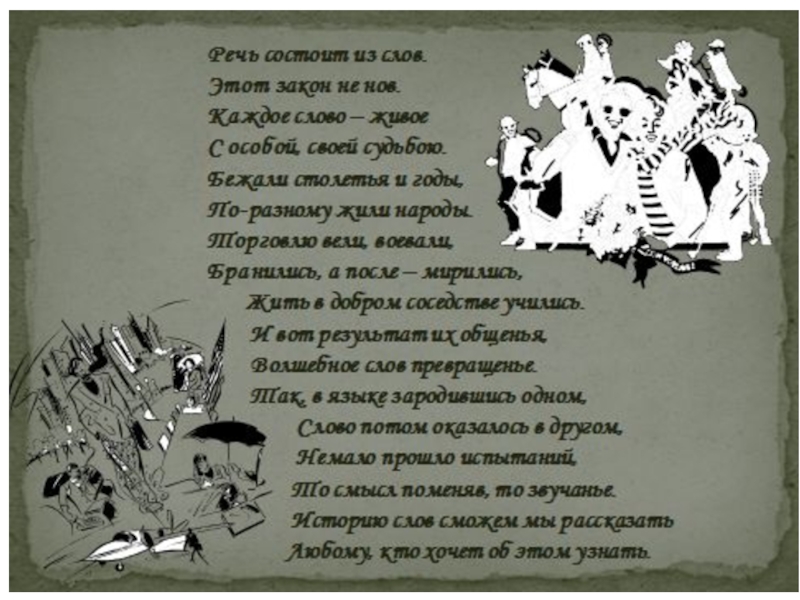- Главная
- Разное
- Дизайн
- Бизнес и предпринимательство
- Аналитика
- Образование
- Развлечения
- Красота и здоровье
- Финансы
- Государство
- Путешествия
- Спорт
- Недвижимость
- Армия
- Графика
- Культурология
- Еда и кулинария
- Лингвистика
- Английский язык
- Астрономия
- Алгебра
- Биология
- География
- Детские презентации
- Информатика
- История
- Литература
- Маркетинг
- Математика
- Медицина
- Менеджмент
- Музыка
- МХК
- Немецкий язык
- ОБЖ
- Обществознание
- Окружающий мир
- Педагогика
- Русский язык
- Технология
- Физика
- Философия
- Химия
- Шаблоны, картинки для презентаций
- Экология
- Экономика
- Юриспруденция
Borrowings to English language from sanskrit презентация
Содержание
- 1. Borrowings to English language from sanskrit
- 2. “There is no any language in the
- 4. Historical causes of borrowings: 1.Wars 2.Journeys 3.Trade 4.Conquest
- 5. They enrich language. The role of borrowings
- 6. The process of borrowing the vocabulary Transcription Transliteration Tracing Semantic borrowing
- 7. The source and the epoch of borrowings:
- 8. Кельтські запозичення
- 9. Latin borrowings: A great amount of borrowings
- 10. Scandinavian borrowings : From the VIII
- 11. French borrowings: After the Norman conquest in
- 12. Borrowings from other
- 13. Borrowings from Russian language: Borrowings
- 14. In the XIX century Europeans showed
- 15. Sanskrit is more perfect than Greek,
- 17. Thank you!
Слайд 2“There is no any language in the world which would be
free from foreign language influence”
N.M. Shansky
Слайд 3 What are borrowings? Borrowing is a prosess as a result of
which a new foreign element appears and consolidates in the language.
.
Слайд 6
The process of borrowing the vocabulary
Transcription
Transliteration
Tracing
Semantic borrowing
Слайд 8 Кельтські запозичення
Celtic borrowings:
Dun- бурий
binn- скриня
cradle- колиска
The names of rivers, mountains and towns Exe, Esk, Usk
are of Celtic origin.
Слайд 9Latin borrowings: A great amount of borrowings from Latin are, so called,
“scientific worlds”, which appear in the English language
in XI-XIII centuries:
interia,
sanatorium, datum.
Слайд 10 Scandinavian borrowings : From the VIII century words appear in the
English language with the help of vikings’ raids: they(вони), get(отримувати), cut(різати)
Слайд 11French borrowings: After the Norman conquest in the XIV century in English
language appear such words as:
government, council, power country and
such military terns as: army, solder, sergeant, captain
Слайд 12 Borrowings from other languages: More than 2000 Holland borrowings were
borrowed into English..
There are some 800 words borrowed from German into English.
There are the following semantic groups of Spanish borrowings:
a) trade terms: cargo, embargo;
b) names of dances and musical instruments: tango, rumba, habanera, guitar;
c) names of vegetables and fruit: tomato, potato, tobacco, cocoa, banana, ananas, apricot etc.
Japanese borrowings:
Sushi Aikido
Слайд 13
Borrowings from Russian language:
Borrowings from Russian appear in the English
language in XVI century after the establishing of economic and political relations.
Boyar Cossack Tsar Voivoda
Sable was the first Russian word in English
Слайд 14
In the XIX century Europeans showed a great interest to the
Indian culture, that’s why to many words appear in English from sanskrit.
For example: nirvana – нірвана,
swastika – свастика, yoga – йога, karma – карма
Слайд 15
Sanskrit is more perfect than Greek, more copious than the Latin
and more refined than any language.
Sanskrit is the mother of all languages.
maharadja – магараджа
bungalow – бунгало
jungle – джунглі
cashmere – кашемір
